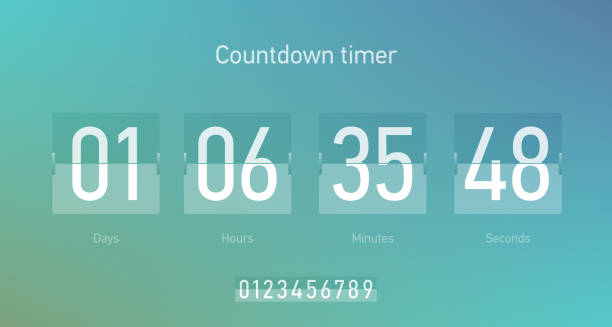There Are Many Reasons To Utilize The Timer

Using a timer to set boundaries for the time your child spends on screens is an excellent method to teach them self-regulation. It can also help them develop to be responsible and self-sufficient.
Encourage your child's participation in the task
A timer is the perfect way to help your child to get on top of a task. It doesn't matter if it's getting dressed for school brushing their teeth, or completing homework the use of 9 minute timer is a good method to make sure that your child will get it done on time.
The first thing to do is figure out what the most suitable timeframe is for your child. Certain children like shorter time intervals while some like longer time intervals. You can collaborate together with your child determine the optimal length of time for each task.
This can be done by sitting down with your child to explain what you are doing and why it matters. This will enable them to be more independent.
Giving your child a reward when they do a task well is the most effective method to get them motivated to do it. You can monitor your child's progress with a simple reward chart.
Limit screen time
Utilizing a 25 minute timer to restrict screen time is a good method to control your child's access to mobile devices. There are many devices capable of doing this. A good timer will bring you a sense accomplishment while at the same making sure you limit the time that your child spends on screens.
It's up to you to develop a family plan that limits screen time , and allows your children to participate in other activities. It may be beneficial to include a "no screen time" rule for bedtime or when you are taking an excursion.
A reliable timer will be able to display the appropriate "out of sight" indicator to let you know when your device is ready to go. A timer is a great tool to warn your child not to play or do anything else.
It's not a secret that screens can distract children, especially while they try to do something else. It is essential to stop using your phone. This can be accomplished by placing the phone on a table just outside the door of your bedroom. It is also recommended to schedule a break every 30 minutes to sit in front of your computer.
Help your child learn self-regulation
Utilizing a timer in order to aid your child in learning self-regulation can be an effective instrument. Children who can handle stress better will be able to succeed at school. They also are more likely to be successful at home and with friends.
The first step to aiding your child in learning self-regulation is to understand the emotions they experience. If, for instance, you have a child who is struggling to stay quiet while you read a book, they may be feeling anxious. Help them understand that they need to take a break from noisy environments.
In the next step, you'll have to set expectations based on the child's age as well as development. Preschoolers may have to be taught how to take responsibility for sharing the responsibility. You should also take into consideration the type of surrounding. A timer could be beneficial when your child is exposed to excessively loud noises.
If your child struggles to regulate their mood, they might get angry, angry, or angry. They may also have trouble doing their work or working with small groups.
Teach children responsibility and independence.
A timer can be an excellent tool for teaching children responsibility and independence. A timer can be an effective tool for helping children stay focused and get things done.
A timer can be helpful to children who are having trouble getting up early in the morning. As your child improves and more confident, you can increase the duration of the timer. It's also possible to use 35 minute timer for homework and other tasks.
One way to teach children to be responsible is to assist them in understanding how to establish boundaries. This is especially important as they age and begin to comprehend the relationships between rewards and responsibilities. This will help them to deal with the inevitable challenges as they grow older.
Teaching kids responsibility and independence requires you to have plans and you follow through on your plans. You must also make your child responsible for their choices. You can do this by praising them for their positive decisions.